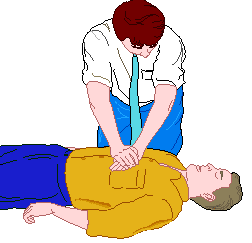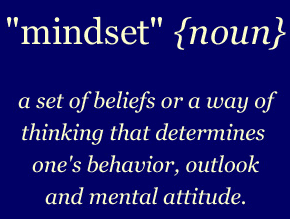One of the human factors influencing situational awareness is the mindset of the first responder. Mindset is based on beliefs, biases and self-perception. Mindset may also be influenced by organizational culture and peer pressure.
In this series I am going to explore nine potentially dangerous mindsets and share how they can impact emergency scene safety.
Mindsets
The human brain has the potential for many mindsets and you can have multiple mindsets depending on the situation you find yourself in. For example, some first responders I know would never allow their kids to ride in their family vehicle unrestrained yet the same responders do not wear seat belts while riding in an emergency vehicles during a response. Clearly, those are two different, and in this case, conflicting, mindsets held by the same responders.
Dangerous Mindsets
The potentially dangerous mindsets I will be writing about in this series include:
- The starter (a.k.a., the new member)
- The subordinate (a.k.a., the loyal follower)
- The specialist (a.k.a., the expert or ‘know-it-all’)
- The superior (a.k.a., the BOSS!)
- The stubborn (a.k.a., the defiant)
- The silent (a.k.a., the shy one)
- The superman/Superwoman (a.k.a., the unstoppable)
- The slacker (a.k.a., the complacent)
- The synergist (a.k.a., the like-minded)
Let’s begin at… the beginning… with the mindset of the newly hired first responder.
The Starter
 Everyone of us should be able to relate to this mindset. We’ve all been there, albeit some more recently than others. Being the new responder can be a scary ordeal. I recall how intimidated I was just learning how to properly don my turnout gear. In fact, when I first joined I didn’t know what I didn’t know.
Everyone of us should be able to relate to this mindset. We’ve all been there, albeit some more recently than others. Being the new responder can be a scary ordeal. I recall how intimidated I was just learning how to properly don my turnout gear. In fact, when I first joined I didn’t know what I didn’t know.
The term sometimes given to that is level of ‘expertise’ is unconscious incompetence. That was me in 1979 and that was you in whatever year you were new.
I recall not only being scared about the things that could hurt and kill me, but I was also afraid – perhaps intimidated is the better word – of my more experienced comrades. I’d listen attentively to their stories of past emergencies and their heroic actions and I was in awe. Would I ever be that good? Could I ever become that good? I sure felt like I didn’t want to disappoint them. So I kept my mouth shut and did what I was told.
Scared into silence
 Looking back, I recall that while remaining silent and doing what I was told, I did some pretty dumb things. I did things that were inconsistent with the training I had received. I did unsafe things as I was being told “Kid, you learned it one way in the academy. Now we’re going to show you how it’s done in the street.” I was too afraid to speak up.
Looking back, I recall that while remaining silent and doing what I was told, I did some pretty dumb things. I did things that were inconsistent with the training I had received. I did unsafe things as I was being told “Kid, you learned it one way in the academy. Now we’re going to show you how it’s done in the street.” I was too afraid to speak up.
There was too much risk in speaking up. I was sure the input of a lowly plebe about a safety concern would cause me to, at best, be laughed at and, perhaps worse, be put into exile. I’d resigned myself to the fact that I’d do what I was told and hope it didn’t kill me. Looking back, I think it was luck that saved me on more than a few occasions.
A coward among us
 I didn’t know how to speak up. I felt that some of the things I was being told to do were not safe but I didn’t know how to tell anyone about my concern. I felt alone, like I was the only one who felt this way, like I was the only one scared. I didn’t want to be the coward among these brave heroes.
I didn’t know how to speak up. I felt that some of the things I was being told to do were not safe but I didn’t know how to tell anyone about my concern. I felt alone, like I was the only one who felt this way, like I was the only one scared. I didn’t want to be the coward among these brave heroes.
I would lay awake at night, rehearsing how I would tell my officer that I thought his decision to do this or that was not a good one. I was never able to reconcile a good outcome. For every approach I concocted, I saw a bad result. It’s ironic. In my desire to avoid being a coward, I had become one.
The day it all changed
 I can remember the day it all changed as if it were yesterday. I was having a discussion with an officer from my department over a root beer float at the local malt shop (ok… you can call ‘B.S.’ on that one) and he said something that floored me. He said: “The one thing that keeps me up at night is the fear that I would be screwing something up on a fireground and no one would tell me about it.” I was stunned into silence.
I can remember the day it all changed as if it were yesterday. I was having a discussion with an officer from my department over a root beer float at the local malt shop (ok… you can call ‘B.S.’ on that one) and he said something that floored me. He said: “The one thing that keeps me up at night is the fear that I would be screwing something up on a fireground and no one would tell me about it.” I was stunned into silence.
It was like the weight of the world had been lifted off my shoulders. It opened the door for a great conversation and I shared with him what kept me awake at night was how to speak up when things are not going well. After all, I was the new guy – the rookie. Then, he said the second most shocking thing: “You have just completed a six-month fire training program. When I started there was no training program. I learned on the job. I’ve never had the training you’ve had. You know things I don’t know. You can see things I can’t see. You can help me be a better officer if you’ll share what you know.“
CPR in progress
 By this point in the conversation I’m sure I’d stopped breathing. My heart may have even stopped beating. At a minimum, I know I was having a run of V-Tach. I wanted to hug him, right then and right there. But, since we were in the ‘malt shop’ I decided against it. Over the course of the following weeks and months I continued to ask questions of this officer about how to approach people when I have a concern. It was a neat time in my development and I learned one of the most important lessons I’d ever need as an officer: Teach my followers how to speak up when they are concerned and let them know I will appreciate them.
By this point in the conversation I’m sure I’d stopped breathing. My heart may have even stopped beating. At a minimum, I know I was having a run of V-Tach. I wanted to hug him, right then and right there. But, since we were in the ‘malt shop’ I decided against it. Over the course of the following weeks and months I continued to ask questions of this officer about how to approach people when I have a concern. It was a neat time in my development and I learned one of the most important lessons I’d ever need as an officer: Teach my followers how to speak up when they are concerned and let them know I will appreciate them.
Dr. Gasaway’s Advice
 As with much of the advice I dispense in my articles and in my classes, sometimes the solutions are simple, but not easy. If you are the starter, it’s simply a matter of discussing, in a respectful way, your concerns. Approach it from the perspective that ‘everyone goes home’ is the goal. Use a parable or, for that matter, share the story I wrote about here to help open up the dialog. Your safety is too important to risk the consequences of not speaking up.
As with much of the advice I dispense in my articles and in my classes, sometimes the solutions are simple, but not easy. If you are the starter, it’s simply a matter of discussing, in a respectful way, your concerns. Approach it from the perspective that ‘everyone goes home’ is the goal. Use a parable or, for that matter, share the story I wrote about here to help open up the dialog. Your safety is too important to risk the consequences of not speaking up.
If you’re an officer or in a position of influence over others, initiate the discussion. Be the one to open the dialog about how to speak up and make sure your followers know you genuinely appreciate them helping you by sharing their concerns for safety. I don’t care how much training you have, how much experience you have or how good you think you are. There is ALWAYS the possibility for you to make a poor judgment based on flawed situational awareness. You’ll appreciate having followers who are there to help you avoid tragic consequences.
Discussions

1. Describe a time when you felt intimidated to speak up and regretted not doing so. If you had the opportunity to relive that experience, what would you have done differently?
2. Describe what the conversation might sound like if you were to have a meaningful discussion with your supervisor about concerns you have for your safety.
3. Describe what the conversation might sound like if you were to have a meaningful discussion with your subordinates about your desire to have their input when you’re making a mistake.
NOTE: You may also want to read the Five Step Assertive Statement Process article I wrote. CLICK HERE for the link.
_____________________________________________________

If you are interested in taking your understanding of situational awareness and high-risk decision making to a higher level, check out the Situational Awareness Matters Online Academy.
CLICK HERE for details, enrollment options and pricing.
__________________________________
Share your comments on this article in the “Leave a Reply” box below. If you want to send me incident pictures, videos or have an idea you’d like me to research and write about, contact me. I really enjoy getting feedback and supportive messages from fellow first responders. It gives me the energy to work harder for you.
Thanks,

Email: Support@RichGasaway.com
Phone: 612-548-4424
SAMatters Online Academy
Facebook Fan Page: www.facebook.com/SAMatters
Twitter: @SAMatters
LinkedIn: Rich Gasaway
YouTube: SAMattersTV
iTunes: SAMatters Radio

